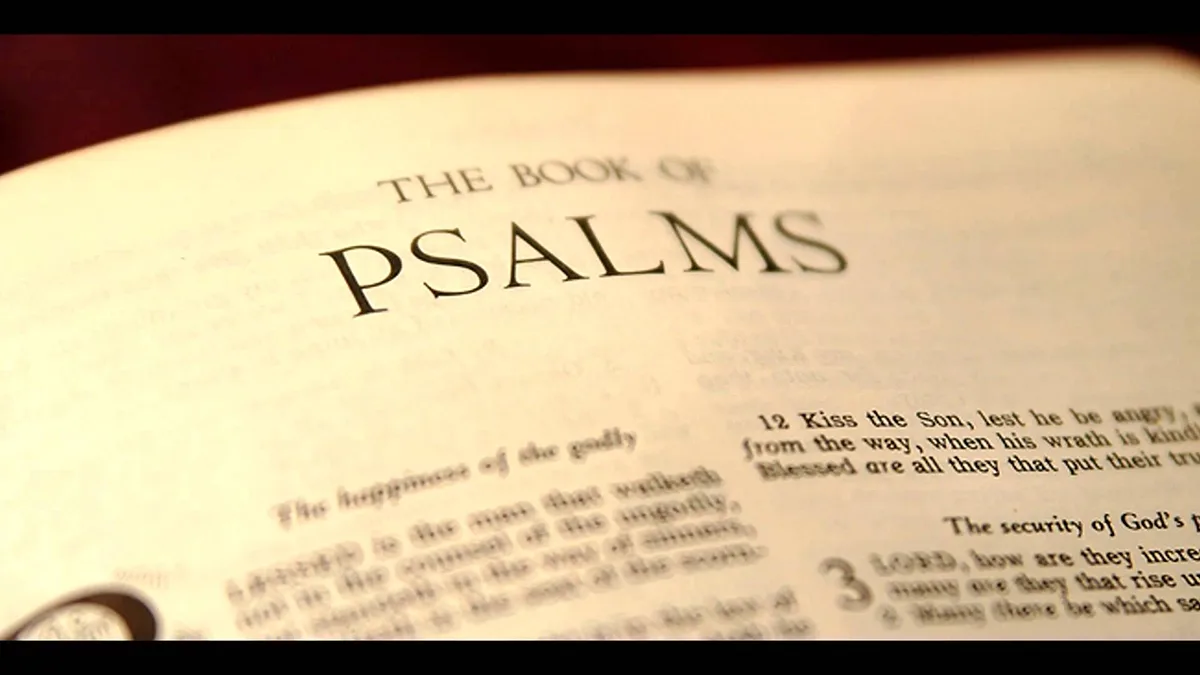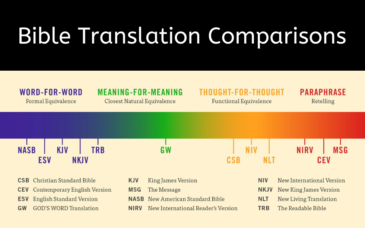The Book of Psalms, one of the most beloved and enduring sections of the Bible, occupies a central place in both Jewish and Christian traditions. In the King James Version (KJV), the Psalms are celebrated for their poetic beauty, profound spiritual depth, and rich historical context. This post delves into the history, structure, themes, and influence of the Psalms as rendered in the King James Bible.
The Origin and Structure of the Psalms
The Book of Psalms, known as Tehillim (meaning "Praises") in Hebrew, is a collection of 150 songs, prayers, and poems that were originally composed over centuries. These compositions are attributed to various authors, including King David, Asaph, the Sons of Korah, Solomon, and Moses.
- Historical Background:
The Psalms were written between approximately the 15th century BCE (the time of Moses) and the post-exilic period in the 5th century BCE. They were used in ancient Israelite worship, often accompanied by instruments such as lyres and harps, and played a significant role in temple ceremonies and private devotion. - Fivefold Division:
The Psalms are traditionally divided into five books, mirroring the Pentateuch (the first five books of the Bible):Each book concludes with a doxology, a short hymn of praise, emphasizing the theme of worship throughout the collection.
The King James Version and Its Translation of the Psalms
The King James Version, commissioned by King James I of England in 1604 and completed in 1611, was a monumental undertaking in biblical translation. It sought to produce a Bible that was accessible to English speakers while preserving the majesty and dignity of Scripture.
- Translation Principles:
The translators of the KJV, 47 scholars divided into six committees, worked from the original Hebrew texts of the Psalms, as well as from earlier English translations like the Geneva Bible and the Bishop’s Bible. Their goal was to balance literal accuracy with poetic elegance, making the Psalms both faithful to the source and musically resonant in English. - Poetic Style:
The Psalms in the KJV are renowned for their rhythmic and parallel structures, characteristic of Hebrew poetry. For example, Psalm 23 ("The Lord is my shepherd; I shall not want") exemplifies simplicity and profound imagery, making it one of the most quoted passages in English literature.
Major Themes in the Psalms
The Psalms cover a vast array of human emotions and experiences, reflecting the breadth of the human relationship with God.
- Praise and Worship:
Many Psalms extol God’s majesty, creation, and faithfulness. Examples include Psalm 19 ("The heavens declare the glory of God") and Psalm 150, which ends the collection with a resounding call to praise. - Lament and Supplication:
Psalms of lament express grief, sorrow, and pleas for divine intervention. For instance, Psalm 22 begins with the haunting cry, "My God, my God, why hast thou forsaken me?"—words echoed by Jesus on the cross. - Thanksgiving:
Thanksgiving Psalms celebrate deliverance and blessings, such as Psalm 100 ("Make a joyful noise unto the Lord") and Psalm 136, with its repeated refrain, "For his mercy endureth forever." - Wisdom and Instruction:
Didactic Psalms, like Psalm 1, contrast the ways of the righteous and the wicked, offering guidance for a life aligned with God’s will. - Royal and Messianic Themes:
Many Psalms, such as Psalm 2 and Psalm 110, are seen as prophetic, pointing to the Messiah and the ultimate reign of God’s anointed king.
Historical Impact of the Psalms in the KJV
The Psalms in the King James Version have profoundly influenced both religious practice and cultural expression.
- Liturgical Use:
In Christian worship, the Psalms are integral to liturgies, hymns, and prayers. The Anglican Book of Common Prayer incorporates the Psalms extensively, reflecting the KJV's translation. - Cultural Influence:
The poetic beauty of the KJV Psalms has inspired countless writers, composers, and artists. John Milton, Isaac Watts, and Handel all drew heavily on the Psalms for their works. - Political and Social Context:
During the English Civil War and subsequent Puritan movement, the Psalms were used as a source of solace and inspiration, often sung or recited in times of trial.
Famous Psalms in the King James Version
Here are some notable Psalms and their enduring significance:
- Psalm 23:
Known as "The Shepherd Psalm," it provides comfort in times of fear and uncertainty, symbolizing God’s guidance and protection. - Psalm 46:
"God is our refuge and strength, a very present help in trouble" inspired Martin Luther’s hymn "A Mighty Fortress Is Our God." - Psalm 51:
A profound prayer of repentance, traditionally attributed to David after his sin with Bathsheba. - Psalm 119:
The longest Psalm, it extols the beauty of God’s law and emphasizes devotion to His Word. - Psalm 137:
A poignant lament for the Babylonian exile, containing the famous line, "By the rivers of Babylon, there we sat down, yea, we wept, when we remembered Zion."
The Psalms: A Timeless Legacy
The Psalms in the King James Version remain a cornerstone of spiritual life, offering words of comfort, praise, and introspection that resonate across centuries. Their historical depth, theological richness, and poetic splendor ensure their place as one of the most cherished parts of the Bible.
Whether read in personal devotion, sung in worship, or studied for their literary artistry, the Psalms continue to connect believers to the divine and to each other. Their timeless appeal is a testament to their universal truth: a profound reflection of humanity's search for God and His enduring presence.

